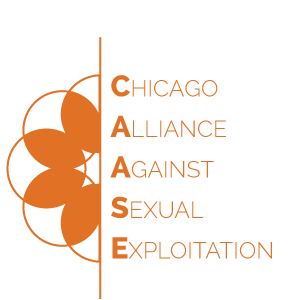How To Support Someone Who’s Been Sexually Assaulted
“I was sexually assaulted.”
In spite of how supportive you want to be or how close you are to the person involved, it can be hard to find the right response to this disclosure. Words probably feel small: What do you say to someone who has experienced sexual violence? What’s the best way to help? How can you be an ally?
Research shows that many survivors don’t seek medical care or a forensic collection exam; the police also have a pattern of failing survivors after they report, which discourages many from engaging with law enforcement. Survivors, however, do frequently reach out to members of their communities. With that in mind, here are five tips for friends and loved ones who want to support a survivor of sexual assault.
1. Affirm the survivor’s experience without judgment or critique
Because sexual assault isn’t a singular experience, there’s no such thing as a singular best-response. There is, however, a best place to begin. Based on our experiences working with survivors, we know reactions matter! Be affirming and open to what they are saying. It’s common for survivors to express doubt about being taken seriously. If that happens, reassure them by saying “I believe you.”
There is broad agreement on this point. From CAASE to RAINN to the Start By Believing campaign, experts say that allies should address survivors with statements of affirmation.
2. Prioritize the survivor’s feelings
These conversations must take place at the survivor’s pace. If they struggle to express themselves, tell them that you’re available to listen and talk as they process the situation. If they’re ready to share their story, make space for them. It’s critical, however, to not pressure them into a discussion.
This focus on the survivor also applies to physical contact. As The New York Times writes, “It’s recommended you ask—especially if the person is your romantic partner—if they want physical contact (like holding hands or a hug) as they tell their story, but otherwise default to giving them physical space while they speak.”
Your own sadness or anger shouldn’t get in the way of the survivor’s feelings. “Getting angry, even at the person who did this to your friend or loved one won’t help,” the article continues. “In fact, it could just scare your friend into closing off. Your job isn’t to fix your friend, make them feel better, or take their pain away. Your job is simply to listen.”
3. Treat the survivor like they are still themselves
“It’s important for survivors to still feel accepted and not viewed as dirty, damaged, or different just because of what someone did to them,” Beth Enterkin, a trauma therapist and clinical training specialist at Resilience in Chicago, tells the Tribune’s Christen Johnson. “Respond to the people in your life who have been harmed as if they still are themselves, because they are.”
4. Stay aware of your own emotional boundaries
It’s possible that you’re also a survivor and could feel triggered while trying to support the other person.
“That’s where it’s even more important to say, ‘I believe you,’ ‘it’s not your fault’ and ‘you have options.’ If that’s all you can say because you’re dealing with your own trauma, and saying anything beyond that feels too triggering or too much for you, that’s OK,” Enterkin continues. “Know that you’ve done a world of good with those three phrases.”
If you’re more professionally involved in these conversations, perhaps as a social worker or even a volunteer, CAASE invites you to join Survivors Supporting Survivors in the Movement. These monthly gatherings give support, visibility, and voice to people working within the movement who have a lived experience of surviving sexual harm.
5. Know when to steer towards professional support
At a certain point, it might make more sense to offer therapeutic and legal resources to a survivor, especially if you haven’t personally experienced sexual assault. Show care and concern by asking if you can help them find support. This resource list is an excellent reference for survivors in Chicago.
When it comes to a survivor’s emotional and mental health, talking with someone can make an enormous impact. Whether it’s through a rape crisis counseling center or in a therapist’s office, speaking to someone with empathic—yet objective—expertise can help the survivor feel both affirmed and cared for.
If the survivor wants to pursue justice through the judicial system, you can connect them with free legal services through organizations like CAASE. Our victims’ rights attorneys assist survivors who choose to engage with the criminal justice system, representing them each step of the way. We also provide support for civil litigation—including protective orders, employment and education matters, and Gender Violence Act claims.
The point isn’t for you to walk away feeling like a perfect ally; it’s to ensure that the survivor feels both believed and supported. Your willingness to listen to and affirm them goes a long way.
This piece was published on April 4, 2021. It was authored by KT Hawbaker and edited by Hayley Forrestal. Learn more about our staff here.



